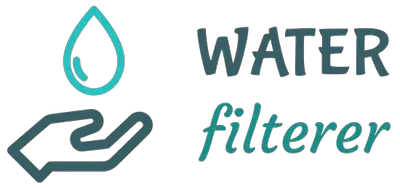Hard water can be a pain – it leaves spots on dishes and glasses, makes it difficult to get your clothes clean, and can even damage your plumbing.

Hard water has a high concentration of minerals, like calcium and magnesium. These minerals can build up on fixtures and appliances, and make it difficult for soaps and detergents to do their job. A water softener is one way to deal with hard water, but it’s not the only way.
Fortunately, there are a few ways you can soften hard water without having to invest in a water softener.
Let’s explore a few of those methods so that you can enjoy the benefits of softer water without breaking the bank.
1. Install a Water Filter to Your Faucet
After filtering your water, you’ll discover that it creates more suds when mixed with soap. This happens because usual contaminants interrupt the chemistry between water and soap molecules. You can test this theory with filtered and unfiltered water to see the difference for yourself. Not only will your dishes come out cleaner, but your shampoo will also work better too.
It’s handy to know that a tap-fitted water filter cannot protect your entire home’s plumbing and appliances from the damage caused by mineral build-up from hard water.
2. Use Citric Acid
Citric acid is another effective way to soften hard water without using a water softener. Simply add a cup of citric acid to your washing machine along with your regular detergent and run a cycle on the hottest setting.
The citric acid will help to break down the minerals that cause hard water, leaving your clothes clean and soft.
3. Try Vinegar
Vinegar is another household staple that can be used to soften hard water. Just add a half cup of vinegar to your washing machine along with your regular detergent and run a cycle on the hottest setting.
The vinegar will help to remove the minerals that cause hard water, leaving your clothes clean and soft.
4. Use Baking Soda
Baking soda is another common household product that can be used to soften hard water. Simply add a half cup of baking soda to your washing machine along with your regular detergent and run a cycle on the hottest setting.
The baking soda will help to break down the minerals that cause hard water, leaving your clothes clean and soft.
5. Boil Your Water
If you’re looking for a quick and easy way to soften your hard water, boiling it is a great option. Simply bring a pot of water to a boil and let it cool before using it for drinking or cooking.
Boiling will help to remove the minerals that cause hard water, leaving you with softened water that’s safe to use.
6. Use the right cleaning supplies
Many people have difficulty with hard water, so some cleaning manufacturers designed products specifically to cleanse hard water stains and limescale.
While these can be effective for a short time, your cleaning product won’t be able to prevent mineral deposits from building up again as hard water runs over the surface of your appliances or plumbing.
7. Use soap nuts
Soap nuts are a natural way to soften hard water. They contain saponin, which is a natural cleanser that will break down the minerals in your water and prevent them from causing hard water.
Simply soak the soap nuts in warm water overnight, and then use the water to wash your dishes, laundry, and more. Soap nuts are considered to be a simple and affordable way to soften hard water.
8. Install an electric tankless water heater
An electric tankless water heater will heat your water on demand, so you won’t have to worry about the mineral buildup that can cause hard water.
These heaters are typically more expensive than a traditional water heater, but they can help to prevent hard water from damaging your plumbing and appliances over time.
9. Use citric acid crystals
Citric acid crystals are a natural way to soften hard water. They work by breaking down the minerals in your water and preventing them from causing hard water. Simply add a handful of crystals to your washing machine or dishwasher, and run the cycle on the hottest setting.
Citric acid crystals will help keep your appliances free from mineral deposits, so they are a great option for those looking for an easy and effective way to soften hard water.
Final Thoughts
If you’re looking for a long-term solution to hard water, you should consider installing a water softener in your home. A water softener will remove minerals from your water supply and help to prevent build-up on fixtures, appliances, and plumbing systems.
There are many different types of water softeners available, so you can choose the one that best suits your needs and budget. Whether you opt for a salt-based system or a more advanced electronic device, investing in a water softener is an easy and effective way to soften hard water.
However, if you need short-term solutions for softening the hard water in your home, there are many options available. The best way to soften hard water depends on your individual needs and preferences, so try any of the options listed and choose a solution that works for you.

